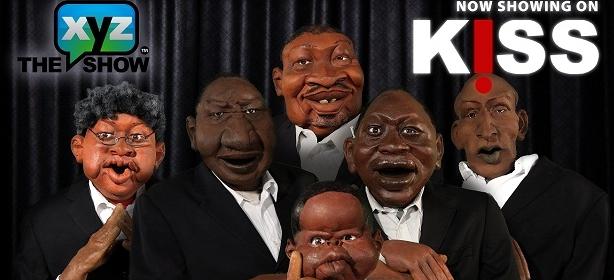How Laughter Works: XYZ Show, Parody and Intellectual Property Rights in the Constitutional Era
- Victor Nzomo |
- May 6, 2013 |
- CIPIT Insights
A society that takes itself too seriously risks bottling up its tensions and treating every example of irreverence as a threat to its existence. Humour is one of the great solvents of democracy. It permits the ambiguities and contradictions of public life to be articulated in non-violent forms. It promotes diversity. It enables a multitude of discontents to be expressed in a myriad of spontaneous ways. It is an elixir of constitutional health. – Justice Albie Sachs in Laugh It Off Promotions CC v South African Breweries 2005 (8) BCLR 743 (CC)
A parody, also called burlesque, satire or spoof, in contemporary usage is a work created to mock, comment on, or poke fun at an original work, its subject, author, style, or some other target, by means of humourous, satiric or ironic imitation. Parody, as a method of criticism, has been a very popular means for authors, entertainers and advertisers to communicate a particular message or view to the public.
In recent times, the popularity of parodies has brought this creative form of expression in direct conflict with the owners of the original works protected under intellectual property (IP) law, particularly copyright and trademark.
The question of trademark parodies arose in the South African case of Laugh It Off Promotions CC v South African Breweries 2005 where the Constitutional Court, for the first time, had to weigh the competing rights of intellectual property on one hand and the freedom of expression on the other hand. In this case, the court allowed the trademark parodies on the basis that the trademark owner had not adduced evidence to show the likelihood of suffering substantial economic damage as result of the offending work. Through this case, the court set an important precedent that IP laws must be read through the prism of the Constitution, more explicitly the right to freedom of expression set out in the Bill of Rights.
At present, the issue of parody in copyright law has not yet been decided by the courts in Africa. This may lead some to pose the question whether parody would be a defence against copyright infringement along with the existing exceptions and limitations provided under statute?
[youtube=http://www.youtube.com/watch?v=iNhoM3Zsseg]
Take for instance the XYZ Show, Kenya’s hilarious and controversial political satire show produced by Buni TV. This ground-breaking African production which features a cast of latex puppets singing and dancing to spoofs of popular music raises several copyright questions worth considering. The most notable question is whether the producers of XYZ Show could rely on parody as a defence against a claim of copyright infringement. The principle of fair dealing as a defence to copyright infringement is statutory in nature. Section 26(1)-(6) of Kenya’s Copyright Act sets out the instances of fair dealing:
26.(1) Copyright in a literary, musical or artistic work or audio-visual work shall not include the right to control:
(a) the doing of any of those acts by way of fair dealing for the purposes of scientific research, private use, criticism or review, or the reporting of current events subject to acknowledgement of the source;
Therefore the question of whether the definition of “criticism” in the above provision could be interpreted by the courts to include works of parody remains open.
In the landmark case of Campell v. Acuff-Rose Music (1994), the United States (U.S) Supreme Court established that commercial parody, like other comment and criticism, may fall within the meaning of fair use under copyright law. The members of the rap music group 2 Live Crew—Luke, Fresh Kid Ice, Mr. Mixx and Brother Marquis—composed a song called “Pretty Woman,” a parody based on Roy Orbison’s rock ballad, “Oh, Pretty Woman.” The group’s manager asked Acuff-Rose Music if they could get a license to use Orbison’s tune for the ballad to be used as a parody. Acuff-Rose Music refused to grant the band a license but 2 Live Crew nonetheless produced and released the parody. In arriving at its decision, the Court held that the fact that revenue has been generated from a parody does not make it impossible for a use to be fair; it is merely one of the components of a fair use analysis.
This judicial approach to fair use (fair dealing) provisions in US Copyright Law has led to the establishment of a common law rule determined by case law and practice.
In the UK, the Government accepted the 2011 recommendations of the Hargreaves Review of IP and Growth which provided, inter alia:
Copyright exceptions to allow parody should also be introduced to benefit UK production companies and make it legal for performing artists, such as comedians, to parody someone else’s work without seeking permission from the copyright holder. It would enable UK production companies to create programmes that could play to their creative strengths, and create a range of content for broadcasters.
In post 2010 Kenya, the constitutionalisation of intellectual property rights along with other fundamental rights and freedoms such as freedom of expression makes it imperative for a balanced judicial approach.
Indeed, this blogger would join the chorus of those who argue that the lack of sufficient defences to intellectual property infringement can have the effect of blocking innovation and economic growth as the interests of rights holders are so protected that other creators and innovators are prevented from entering the market.

